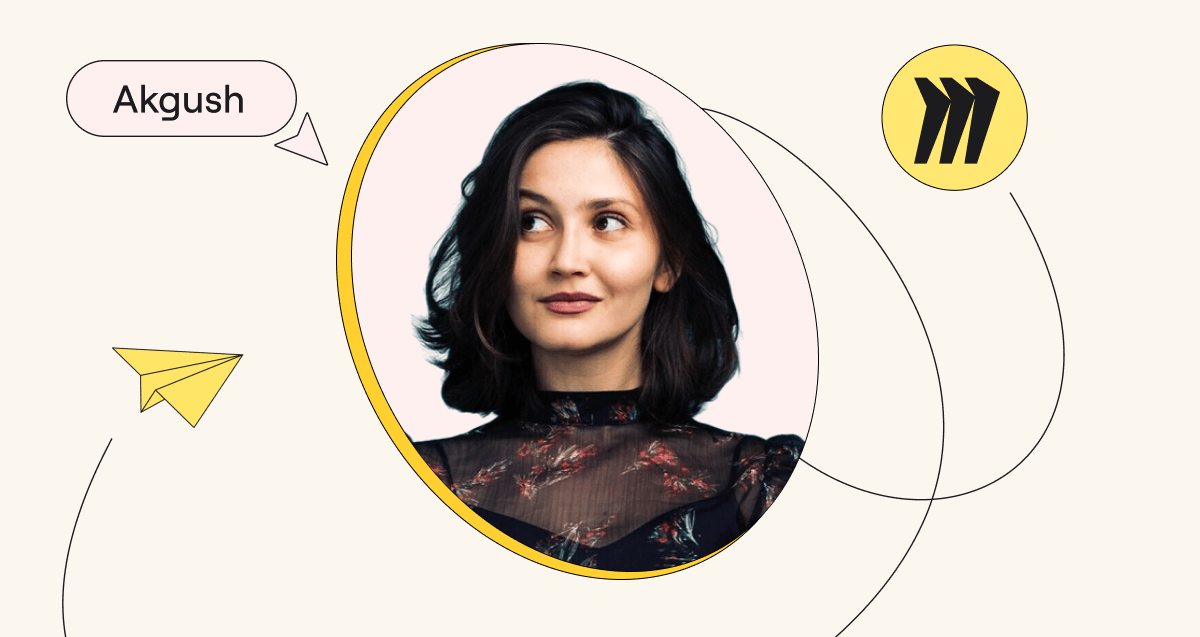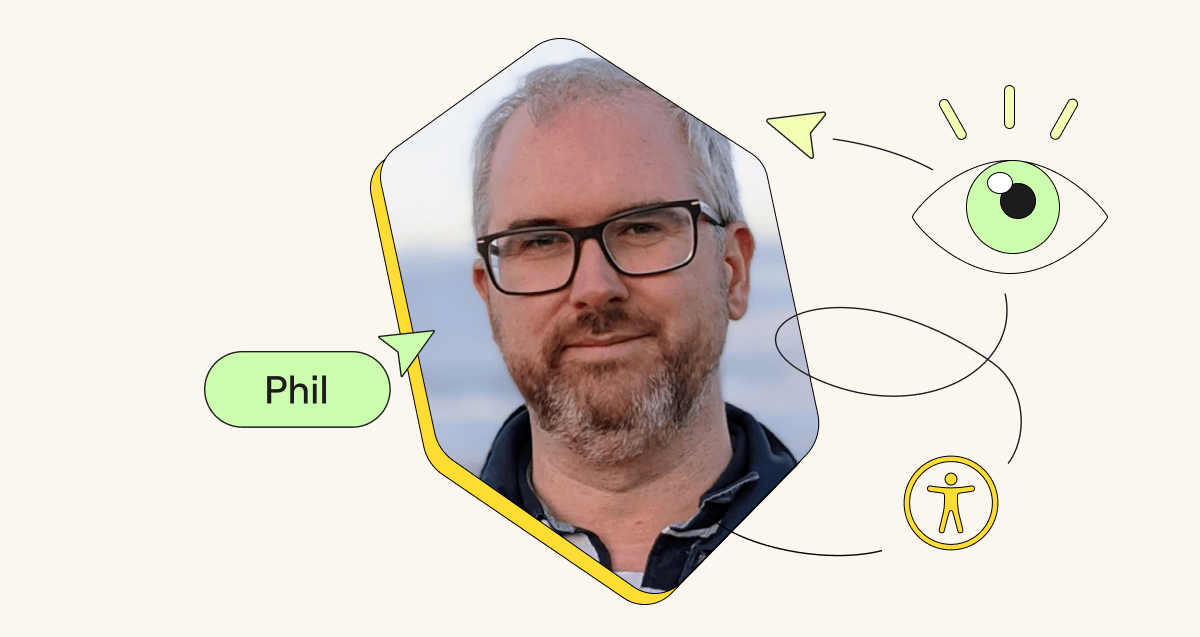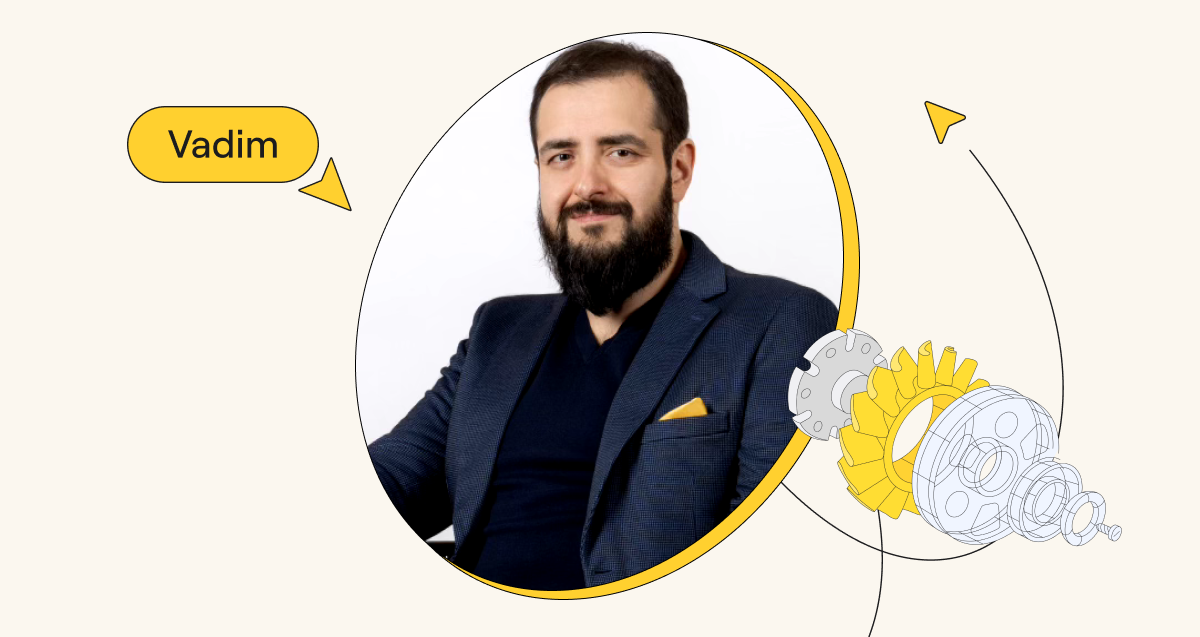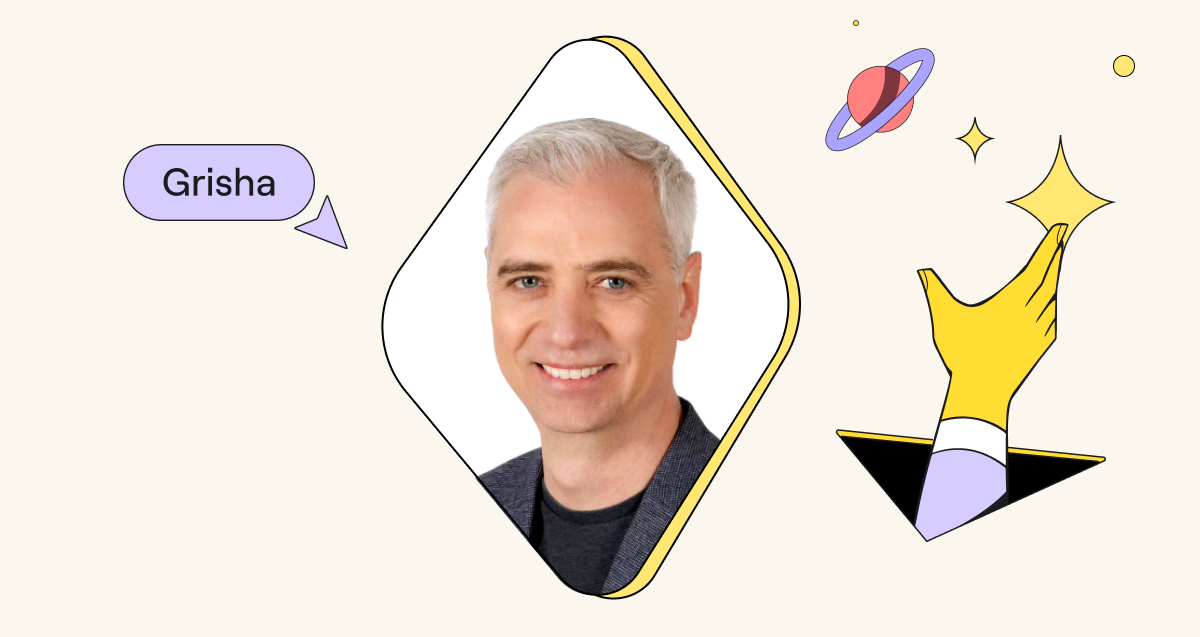Today, we’re joined by Akgush Meredova, Miro’s Global Diversity & Inclusion Lead, who shares with us what she’s learned in her first four months at Miro and where she plans to take us when it comes to D&I.
How did your career in Diversity & Inclusion (D&I) start?
I started my career at Accenture, and because I’ve lived in five different countries, they really wanted my diverse cultural perspective on the tech implementations we did. Then when I moved to Deloitte, I still worked in tech, but I again focused on the cultural lens on tech including D&I, working with Employee Resource Groups (ERGs), and learning and development.
I’m a Spiritualist, and I believe that we’re living in this really exciting time where spirituality and science are starting to merge. So in light of that, I started my own company, Heart Work, which brings spirituality into company spaces. I specifically focused on people development so that we could help people dive deeper into what makes them authentic and special. Eventually, I found that I didn’t necessarily want to be a consultant anymore, and that it was time to embed myself in a company full-time.
Miro was really appealing to me as a company, having previously used the tool. Furthermore, because its D&I work was in the beginning stages, I knew I would be able to start implementing significantly deeper understandings of what D&I can be. That’s what’s exciting for me. So that’s how I ended up here!
You said you’re a Spiritualist — what does that mean for you?
I really appreciate spending time understanding ancient wisdom. For example, Yin Yang is a philosophy from China that actually comes very close to queer theory. Yin Yang looks at what we traditionally understand as describing opposite but interconnected forces, like the feminine and masculine, light and dark, etc. Like queer theory, Yin Yang says that it’s incorrect to see people as just feminine or masculine. You aren’t just a woman, you aren’t just a man, you aren’t these two very binary ideas; you’re actually so much more than that.
I am from Turkmenistan. Turkmen are often Sufi, a mystical form of Islam, though historically we were Zoroastrians, who worshiped fire, and Buddhists. So a lot of the Turkmen cultural aspects that I was raised on are very tribal, very traditional, and very indigenous to the land. I know my tribe that I come from, I know how my people lived in a tribal way. But I also grew up in Dubai, while being exposed to all the three Abrahamic religions, which really required me to critically analyze and think about all the faces of religion, from strict to mystical. Then we moved to the UK, where I discovered a patriarchal focus on rationality, and a lack of focus on emotions.
As I struggled to understand my place, I found myself tearing from all the different countries that I’ve lived in and the different experiences that I’d had. Needing to find my center again, I went back into understanding my culture, and in the process, I found complete, heart-felt spirituality as a Spiritualist.
What have you discovered about D&I in your first four months at Miro?
Miro is such an interesting case. We’re a small, but global company that is spread out across so many different locations, which means we can no longer actually look at localizing D&I efforts — something a lot of organizations do. And if we can’t localize D&I efforts, we need to find a way to bring all these different countries, each with their own ideas of D&I, together into one unified strategy — just like we did with Miro Together, our global hybrid work strategy.
One thing I’m looking at right now that I feel really proud of is developing personas, or archetypal users whose goals and characteristics represent the needs of larger groups, that will help us further evolve our ideas around accessibility. We’ve been asking questions like, “How does our product evolve?” “How do we do performance reviews when we consider these personas?” This work will have a big impact on the D&I programs we implement in the next fiscal year.
The other thing I feel proud of is getting buy-in from leadership to do design thinking. I’m a design thinker, I like to get feedback from everybody when I create something. I need to go ask everyone, “What is it that we want to be doing as D&I within the organization? How was the D&I roadmap looking? Do you feel like it’s actually addressing your needs?” I’ve been conducting interviews that get to the heart of what people are worried about, what their criticisms are, and how to approach future actions from a place of understanding and kindness.
What’s coming down the pipeline?
At its core, D&I is about making sure that everybody is seen, recognized, appreciated, respected, and empowered. If we can create an environment that allows employees to flourish, that means we are doing all of those things. I’ve been working on constructing four pillars, or principles, that will look at D&I from this perspective:
- Equal recognition
- Strong relationships
- Autonomy
- Psychological safety
These four pillars, once finalized, will shape our D&I roadmap and will act as our D&I statements that will help us build towards a more diverse and inclusive Miro. I cannot share them just yet, as they are still in the works, but keep an eye out early next year for more information.
These pillars will also drive the projects we take on as the D&I team, and they’ve already influenced my work in the last few months. They’ve driven the interviews I’ve been conducting, which will wrap up around the end of January 2023. Soon, I’ll be able to build out a D&I roadmap that’s more aligned to the kind of D&I leader I want to be, and will be informed by my conversations and collaborations with Mironeers. I’m excited about that!
What are your hopes for D&I at Miro?
We’ve come such a long way at Miro with D&I, yet there’s always more work to do! What I really hope is that I can help Mironeers to avoid developing ideas of people based on pre-existing notions and assumptions. I hope we see everyone’s identities as extremely layered, and in constant movement. I also hope we can start appreciating that at any given moment, something that we hold dear, something we believe really strongly, might end up being wrong.
Feedback is a huge part of the culture at Miro. There’s always going to be at least one thing that we are so, so wrong about, and letting that thought humble us when we look at somebody else — having that compassion to understand — is going to help all of us grow together into the kind of people and organization we want to become. Like any organization, we’re on a journey, and I’m excited to see where it takes us.



